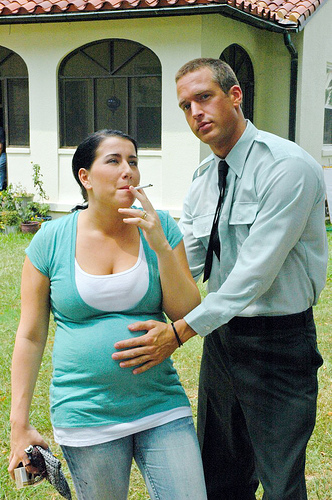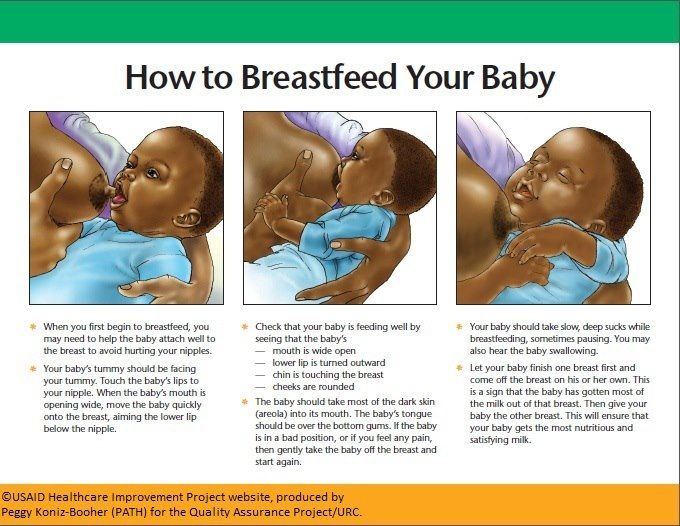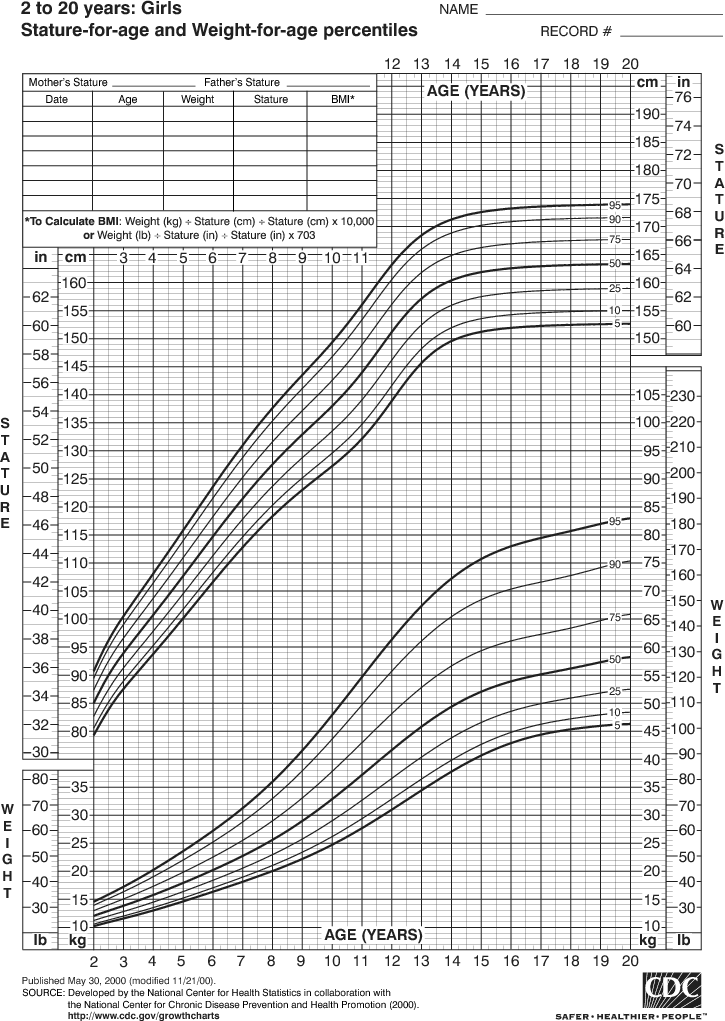Throwing up green bile while pregnant
I'm pregnant. Why am I vomiting bitter yellow liquid?
by Megan Rive | Medically reviewed by Dr. Diane Phillips, General Practitioner |
The bitter yellow liquid you’re vomiting is your stomach juices. You’ll most often see it first thing in the morning, before you’ve eaten, or if you’ve been vomiting repeatedly.
This liquid in your stomach contains enzymes and other things to help digest your food. But when you vomit and have no food in your stomach, you can bring up some of it. It makes your vomit a yellow or greenish-yellow colour. It may also be clear, if you’ve just drunk water, or frothy or phlegmy.
During pregnancy, vomiting can be a normal symptom of morning sickness or reflux. Nausea is often worst in your first trimester and mostly eases by 20 weeks, though for some women it never really goes until their babies are born.
If you vomit stomach liquids when you first get up in the morning, it may help to try to eat something plain and light before you get out of bed. Try some plain biscuits or crackers, plain almonds or cashews, or even a little apple or banana, if you don't mind the smell. You could also snack during the night if you wake up.
It’s important you don't get dehydrated, so keep drinking lots of water. Drinking small amounts often may be better than drinking a large amount in one go. Have some water by your bed that you can sip during the night if you wake.
If plain water is hard to tolerate, try soda or mineral water, ginger tea or dry ginger ale. Add a slice of lemon or some mint leaves for a little flavour.
You may be left with a bitter or metallic taste in your mouth after vomiting stomach juices. But try not to brush your teeth straight away. Stomach juices temporarily soften the enamel on your teeth, so brushing soon after vomiting can damage your enamel.
Instead, try drinking a glass of water, or rinsing your mouth with water and spitting it out. A little lemon in your water or sucking on an ice cube may help.
Excessive vomiting during pregnancy is called hyperemesis gravidarum (HG). If you’re vomiting many times a day, finding it hard to eat or drink without being sick, and losing weight, you may have HG.
See your doctor or midwife straight away if you:
- have very dark wee, or no wee for more than eight hours
- have any pain or a fever
- are very weak or feeling faint
- see blood in your vomit
- vomit several times a day
- can’t keep food or water down for 24 hours or more
- have a severe headache, problems with your vision, strong pain below your ribs, or sudden swelling of your face, hands or feet
And talk to your doctor or midwife if you continue to lose weight over time.
There are over-the-counter and prescription medicines that can help ease your vomiting. Always talk to your doctor or midwife, though, before taking any medication, or herbal or natural remedies.
If you're vomiting a liquid that's more olive-green or brownish-green than yellow, this may be bile. You should seek medical advice straight away if you think you're vomiting bile.
You should seek medical advice straight away if you think you're vomiting bile.
Read more about nausea and vomiting in pregnancy.
Megan Rive
Megan Rive is a communication, content strategy and project delivery specialist. She was Babycenter editor for six years.
Throwing Up Yellow and Pregnant: Causes and Treatments
If you’re pregnant, you may be paying way more attention to everyday aches, pains, discomforts, and bodily fluids than usual.
Since many common pregnancy symptoms fall into two categories — annoying but totally harmless and warning signs of a serious problem — you may find yourself focusing intensely on each and every burp, fart, cramp, twinge, and craving, wondering whether you should ignore it or call your doctor.
And while you were expecting to do some puking during pregnancy, you might not have expected it to be yellow — and now you don’t know what to do about it.
That’s OK! We do know, and we’re happy to tell you.
Yup, it certainly can be!
Yellow vomit is just stomach acid. When you don’t have any food in your stomach but you’re still throwing up, it’s inevitable that you’ll start vomiting the only thing left in there: bile.
Bile is acid produced by your stomach to help break down your food.
If you’re throwing up first thing in the morning when you haven’t eaten anything yet — or if you’re persistently throwing up — it’s normal to eventually see yellow bile instead of whatever your last meal was.
The most likely reason you’re throwing up yellow liquid during pregnancy is the same reason you’re throwing up anything at all during pregnancy: hormones.
Particularly in the first trimester, pregnancy hormones like estrogen and progesterone are skyrocketing.
You’re also developing higher levels of hCG, or human chorionic gonadotropin, as your body accepts the fact that it’s now home to a growing human being (and needs to prepare itself, stat).
So, the puking is normal, but again, because you might be doing it more often than usual and way more often first thing in the morning with an empty stomach, it’s likely to be yellow at least once in a while.
Depending on whether you’ve had any liquids recently and how vigorously you’re throwing up, the consistency of your yellow vomit might vary.
It could be super liquidy and clear, foamy, or even thick and mucousy (yup, nasty). This all falls into the “normal” category.
In addition to your sunshine-colored puke, you may also have the usual morning sickness symptoms:
- a queasy, carsick feeling
- stomach cramps
- loss of appetite
- dehydration
- a bitter or metallic taste in your mouth
Morning sickness usually fires up around the 6th or 7th week of pregnancy, peaks around 9 to 12 weeks, and then tapers off by 12 to 20 weeks. So, if you’re having a lot of yellow vomiting, you can assume it will probably follow that trajectory.
But here’s where we share the bad news: Some stay sick for longer, and some truly unfortunate souls get stuck with morning sickness until they give birth (WHY?!).
It’s not how things usually go, thankfully, so don’t stress about this too much. We just have to put it out there as a possibility.
We just have to put it out there as a possibility.
It helps to settle your stomach after you’ve vomited, so you can maybe catch a few hours of relief.
Sipping nausea-friendly drinks, like peppermint tea and ginger ale, can work wonders. So can nibbling on carbs: Think crackers, toast, dry cereal, pretzels, or plain bagels.
It might be hard to drink water on a queasy stomach, but try to avoid getting dehydrated. If you can’t handle all that liquid going down into your stomach, suck on ice cubes or popsicles, or take small sips from a straw.
Basically, just don’t brush your teeth, as tempting as it is.
Yes, your mouth tastes gross and your breath smells bad. But when stomach acid comes into contact with your teeth (especially if you’re vomiting frequently), it can soften your tooth enamel.
Brushing your teeth when your enamel is softened can actually strip away some enamel, which isn’t great for your teeth in the long run.
If you can’t stand the taste in your mouth, try swishing some water around and then spitting it out again to give your teeth and tongue a good rinse without all the damage.
You can’t necessarily prevent morning sickness — it’s triggered by hormones, which are totally out of your control. (Get used to that, BTW.)
But you can often find a couple of tricks that stave off the worst of it. And you might be able to avoid vomiting of the yellow sort, in particular.
Try the following:
- Eat a small snack right before going to bed or before getting out of bed in the morning. Having something in your stomach might prevent some morning episodes of vomiting and, even if it doesn’t, you won’t be throwing up stomach bile, at least. Protein, like almonds, and carbs are a good choice.
- Don’t skip meals. Consider having something in your stomach at all times, however small. Lots of folks notice their nausea is worse when they haven’t eaten for 2 or 3 hours, so you may want to adopt a constantly grazing approach to food for the time being.
- Avoid excessively spicy foods, which can worsen nausea.
- Get plenty of rest. Some find their morning sickness is worse when they’re tired or running on empty.

- Talk with your doctor about managing your nausea. There may be medications you can use during the worst weeks of morning sickness to avoid throwing up from morning ’til night.
While few get away with zero vomiting during pregnancy, there’s definitely a point when you surpass a “normal” amount of puking and veer into medical condition territory.
This is called hyperemesis gravidarum (HG). You can’t just ignore it; left untreated, HG can lead to:
- dehydration
- malnutrition
- weight loss
- fainting
- mental confusion
Typical red flags suggesting you might have HG and not run-of-the-mill morning sickness include:
- vomiting constantly
- not being able to keep down any food
- fainting or dizzy spells
- weight loss of more than 5 percent of your body weight
If you think you might have HG, call your doctor. Also call your doctor if you have any of the following symptoms:
- dark urine or inability to pee
- severe headache
- fever
- shortness of breath
- dizziness or confusion
- severe pain or cramping in your abdomen
- bloody vomit
- muscular weakness
- vision changes
- vaginal bleeding
- sudden swelling of extremities
- abdominal pain
This could mean your morning sickness isn’t under control, or that you have an infection or other serious medical condition.
Not all nausea is necessarily due to pregnancy. Other things like appendicitis, gallbladder inflammation, and gallstones can still occur in pregnancy.
Throwing up yellow might be alarming, but it isn’t a cause for concern in the majority of cases. It means you’re throwing up on an empty stomach — the yellow stuff is your stomach acid.
You might be able to prevent it by having some food in your stomach first thing in the morning, before you get up, but you won’t be able to stop morning sickness entirely if you’re someone who gets it in the first place.
Thankfully, for most people, morning sickness wraps up by the end of the first trimester (if you’ve been throwing up yellow, that should go away then, too!).
Morning vomiting of bile during early pregnancy: causes
Beauty secrets of stars
Causes of vomiting of bile during pregnancy
Toxicosis in the first trimester is a physiological condition if vomiting occurs no more than five times a day. In the case when this condition occurs frequently, you should definitely consult a doctor.
In the case when this condition occurs frequently, you should definitely consult a doctor.
Why does vomiting of bile occur during early pregnancy?
- Photo
- Getty
There are three reasons why vomiting may occur during the first trimester.
- This may be due to hormonal changes. Excess estrogen, progesterone and human chorionic gonadotropin cause nausea and is the cause of vomiting of bile during pregnancy. The mechanism is simple. Since the stomach is empty in the morning, its contractions suck bile, which further increases nausea. The result is vomiting of bile.
- Pregnancy often provokes exacerbation of chronic diseases of the digestive system. Cholecystitis, cholangitis, pancreatitis can manifest as bilious vomiting.
- The mother's body begins to reorganize to work for two. Sometimes this process occurs with failures, which are manifested by vomiting.

If vomiting is not accompanied by sudden weight loss, dizziness, you can resort to little tricks to alleviate your condition. What to do if morning vomiting of bile appears during pregnancy0003
- Place a few pieces of biscuit at the head of the bed before going to bed. Perhaps someone will like pickled cucumber more. For some expectant mothers, it is enough to hold a match in their teeth. It is important that when you wake up, your lifesaver is at hand.
- Do not brush your teeth on an empty stomach.
- Deep concentrated breathing will help to avoid a new urge. Breathe in through your open mouth, belly and chest at the same time.
- Avoid stuffy rooms. Sleep with the window open.
- Try not to drink large amounts of liquid at one time. Drink and eat small meals.
- Add a little baking soda or special alkali preparations to the water (as recommended by your doctor). This will reduce the concentration of gastric juice.
- Avoid unpleasant odors.
 Turn on the extractor while preparing breakfast.
Turn on the extractor while preparing breakfast.
All these methods are quite simple. And do not forget that the problem will go away by itself in the second trimester of pregnancy, so you should not take serious measures and load the body with medicines for vomiting.
However, if vomiting of bile occurs more than five times a day, be sure to consult a gastroenterologist. This may be a symptom of an illness unrelated to pregnancy.
Read also: birthmark
Wday.ru editors
Read today in the tiniest top you've ever seen
A story in detail: how vagina dresses have changed from Ancient Greece to the present day
“In social networks - a girl, but in life - a grandmother”: Madonna was filmed without filters, and she looks 70 years old
“Camel toe”, open breasts and other starlight: 55 embarrassing photos
Vomiting during pregnancy - what to do?
October 06, 2016 For many, even experienced, mothers, the state of pregnancy is strongly associated with such a concept as vomiting and nausea. Why does this happen and why is it not always a variant of the norm? These issues will be covered in detail in our article.
Why does this happen and why is it not always a variant of the norm? These issues will be covered in detail in our article.
For many, even experienced, mothers, the state of pregnancy is strongly associated with such a concept as vomiting and nausea. Why does this happen and why is it not always a variant of the norm? These issues will be covered in detail in our article.
Vomiting during pregnancy: causes
First, let's list the causes directly related to pregnancy. In such cases, vomiting may be a variant of a sort of "wrong norm."
Early toxicosis of pregnant women. The classic forms of this condition are vomiting of pregnancy, salivation and dermatosis or pruritus of pregnancy. Nausea, lack or perversion of appetite and vomiting during pregnancy in the morning are the most common symptoms of toxicosis. According to general statistics, about half of expectant mothers experienced these conditions during the first 16 weeks of pregnancy. The reason for such unpleasant conditions lies in the formation of a special “pregnancy center” in the brain, which is responsible for vascular reactions, nervous impulses and emotional state. Also negatively affects the motility of the gastrointestinal tract "hormonal boom" in the body, especially high levels of progesterone.
Also negatively affects the motility of the gastrointestinal tract "hormonal boom" in the body, especially high levels of progesterone.
Toxicosis of pregnant women has different degrees of severity:
- Mild degree. Nausea is observed sporadically, vomiting is observed once or twice a day in the morning. The appetite is preserved, the pregnant woman is gaining weight, her general condition is disturbed, her working capacity is preserved. This condition does not require treatment and is corrected by nutrition.
- Medium degree. The pregnant woman is constantly sick during the day. Vomiting occurs several times a day. The pregnant woman does not gain weight or slightly loses it, but her general condition is not disturbed. This degree of toxicosis is corrected by nutrition and light herbal preparations such as chamomile decoction or artichoke extract. Sometimes additional administration of intravenous glucose infusions and administration of antiemetics such as metoclopramide is required.

- Severe toxicosis, fortunately, is quite rare. This is a very difficult condition. A pregnant woman is sick not only in the morning or during the day, but even at night. Vomiting is indomitable in nature. A woman is rapidly losing weight, changes in blood and urine tests appear, kidney function worsens, and dehydration appears. The condition requires treatment in a hospital with the mandatory prescription of antiemetics, droppers with nutrients and vitamins.
Fortunately, most often there is a mild degree of toxicosis, which resolves on its own by 12-16 weeks of pregnancy.
Late pregnancy vomiting. This situation is caused not so much by neuro-psychogenic causes or the action of progesterone, but by the direct pressure of the uterus with the child on the walls of the stomach. After a hearty lunch, against the background of active pushes of the baby or tilt of the torso, pregnant women often experience an attack of vomiting. Vomiting of a pregnant woman after eating, as a rule, is a single situation and does not require treatment. However, do not overeat and exercise excessive physical activity after eating.
Vomiting of a pregnant woman after eating, as a rule, is a single situation and does not require treatment. However, do not overeat and exercise excessive physical activity after eating.
When is vomiting in a pregnant woman a sign of illness?
However, vomiting should not always be attributed to the state of pregnancy: “This is toxicosis, it will pass by itself!”. Let's look at examples when you need to digress from the topic of toxicosis and correctly assess the situation. When is vomiting an urgent reason to see a doctor?
- Infectious vomiting. Such vomiting is usually accompanied by fever, diarrhea, abdominal pain, and general weakness. Sometimes a woman remembers that she "ate something wrong" the day before, or from questioning it turns out that other family members have similar symptoms. Vomiting and diarrhea during pregnancy is a reason to quickly contact a general practitioner or infectious disease specialist to diagnose the type of intestinal infection and appropriate treatment.
 Read more about poisoning during pregnancy.
Read more about poisoning during pregnancy. - Vomiting due to high blood pressure or late preeclampsia. This type of vomiting occurs at the peak of high blood pressure. This condition is very dangerous for both the expectant mother and the child, and requires urgent action.
- Vomiting after injury. On this basis, neurosurgeons and traumatologists assess the severity of traumatic brain injury. If a woman hit her head, fell or had an accident, the appearance of vomiting is an unfavorable sign.
- Vomiting of bile during pregnancy is a sign of a malfunction of the gastrointestinal tract, not related to pregnancy. Vomiting of green bile with a bitter taste occurs against the background of diseases of the liver, gallbladder and duodenum. Also, this condition can be observed with prolonged indomitable vomiting, for example, with severe toxicosis.
- Vomiting blood during pregnancy is also an extremely dangerous condition. The vomit may contain fresh blood, which is a sign of bleeding from the esophagus or oropharynx.
 Also, vomit may resemble brown or brown coffee grounds - this is the most striking symptom of a bleeding stomach ulcer. All these conditions require immediate hospitalization in the surgical department.
Also, vomit may resemble brown or brown coffee grounds - this is the most striking symptom of a bleeding stomach ulcer. All these conditions require immediate hospitalization in the surgical department.
First aid for pregnant women with vomiting
First aid for pregnant women should be provided solely on the basis of the causes of vomiting. It is better if a medical worker does this, having previously correctly assessed the situation. With a normal attack of vomiting against the background of toxicosis, it is necessary to seat or lay down the pregnant woman in order to prevent her from losing consciousness, offer strong sweet tea or plain clean water. With increased pressure, it is necessary to give the woman certain drugs and urgently send to the hospital. When vomiting after a head injury, the patient should be treated by neurosurgeons. The list can be continued based on the previous paragraph of our article.
General recommendations for vomiting of a pregnant woman on the background of toxicosis:
- Frequent small meals.
Food should be taken warm, but not hot, preferably in a supine or semi-recumbent position. Meals should be every two to three hours in small portions. For the first meal of the day, it is important to choose foods that help relieve nausea and do not cause vomiting. There are no single recommendations in this regard. Viscous cereals help someone, juicy fruits help someone, black bread or sweet tea with crackers help someone.
- Compensation for fluid and potassium losses. It is important to make up for the loss of water and important ions by any means. You need to drink as much as you can. In addition, you need to include foods rich in potassium in your diet. These include bananas, persimmons, figs, dried apricots, raisins, potatoes. An ideal drink to replenish fluid losses is dried fruit compote.
Find out more about coping with toxemia.
Is it dangerous to induce vomiting during pregnancy?
Sometimes women ask if it is possible to induce vomiting in case of prolonged and unproductive nausea.












